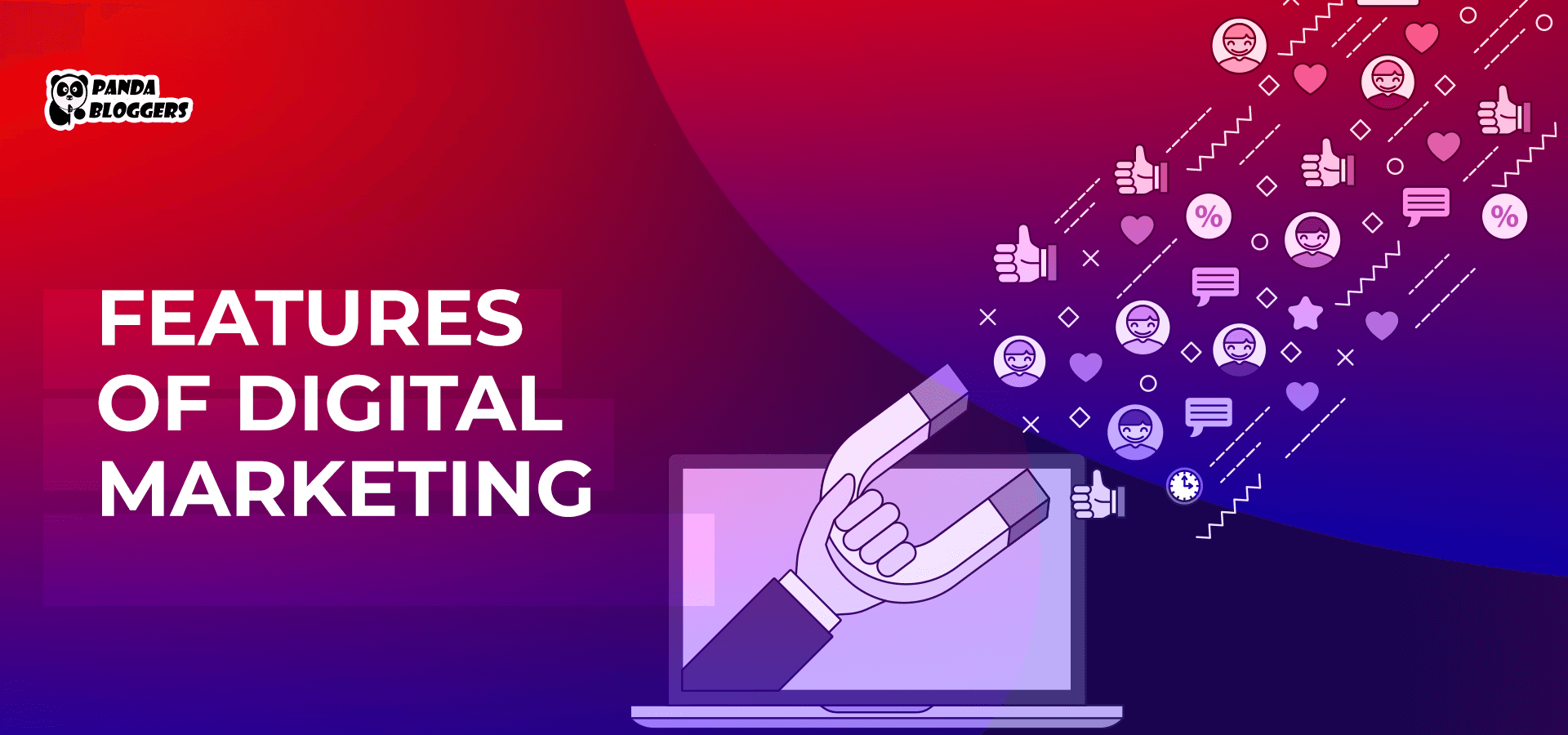 Features of Digital Marketing
Features of Digital Marketing
Unlike traditional marketing, digital marketing focuses on creating brand awareness, driving customer acquisition, and fostering customer loyalty using digital channels and technologies. Businesses these days generate, nurture, and convert leads using top digital marketing channels like websites, paid search, organic search, social media, emails, video-sharing platforms, and mobile apps. Also, they automate routine and repetitive marketing tasks by implementing various marketing tools and solutions. In addition to reducing marketing costs, the marketing automation tools boost campaign performance by sharing data-driven insights. However, most companies and startups increase ROI by running multichannel digital marketing channels. Likewise, they automate the management of multifunctional campaigns by implementing multiple marketing automation tools. The rapid growth of the global market for digital marketing and advertising suggests a surge in the number of enterprises replacing traditional marketing methods with digital marketing tactics. We can understand the prominent drivers of the growth by discussing some of the key features of digital marketing.
Prominent Features of Digital Marketing
Multiple Marketing Channels
As noted earlier, digital marketing drives brand building, customer acquisition, and customer loyalty using multiple digital channels. Businesses these days increase ROI by running multichannel marketing campaigns. For instance, they increase website traffic and generate leads organically by running search engine optimization (SEO) and content marketing campaigns. At the same time, they promote brand awareness and boost sales conversions by running search and social media ads.
Multi-Format Marketing Content
Customers consume digital information in a variety of ways. For instance, some consumers read articles and blogs, while others watch videos or listen to podcasts. Digital marketing creates opportunities for enterprises to engage existing and prospective customers by delivering content in multiple formats. Also, enterprises can generate leads by making it easier for customers to find relevant content when they use search engines or access social networks.
Wide Reach
Digital marketing helps enterprises connect and engage with customers across touchpoints. Customers can access a company’s website and mobile app regardless of their location. Additionally, enterprises can deliver marketing content and messaging to customers using multiple digital channels. The wide reach helps local companies engage customers across regions.
India’s digital landscape allows businesses to connect with audiences from bustling metropolitan cities to remote rural villages. With over 900 million internet users projected by 2025, digital marketing campaigns can efficiently target consumers across diverse regions. Platforms like Facebook, Instagram, and WhatsApp have a significant presence even in smaller towns, ensuring brands can engage audiences beyond major urban centers.
Customer Targeting
While planning digital marketing campaigns, digital marketers these days classify customers into relevant segments based on real-time. Additionally, they create buyer personas that explain the target audiences elaborately. The fictional profiles help marketers and content creators understand what drives customers or prospects to buy a product or service. Also, it becomes easier for marketers to target customers based on key demographic information like age, location, language, job, income, preferences, and interests.
Interactive Communication
Unlike conventional marketing, digital marketing supports bidirectional communication between brands and customers. Brands can engage and influence customers by sharing digital content in multiple formats and using multiple channels. At the same time, they can create opportunities for customers to make inquiries, share feedback, and highlight concerns. Real-time engagement helps brands strengthen customer relationships by resolving issues and working on feedback.
Personalization
Personalization is currently one of the hottest trends in digital marketing. Most companies these days run personalized digital marketing campaigns, tailoring content, messaging, and experiences for individual customers. Buyer personas help marketers tailor content and messaging based on a customer’s demographic and behavioral data. Likewise, marketing automation tools facilitate one-to-one marketing by sharing insights gained through analysis of consumer data collected from diverse sources.
Key Performance Indicators (KPIs)
Decision-makers can measure the ROI of digital marketing accurately using various KPIs. They can further use KPIs to measure the performance of individual marketing campaigns. For instance, they can measure the performance of SEO campaigns using KPIs like keyword ranking, organic website traffic, backlinks, bounce rates, and organic conversions. Likewise, they can evaluate social media marketing strategies using KPIs like impressions, views, likes, comments, and subscribers. These KPIs help enterprises invest in high-performing campaigns and abandon non-performing campaigns.
Automation
As noted earlier, digital marketing tools help enterprises curtail costs by performing routine tasks efficiently and accurately without human intervention. Most enterprises these days implement marketing automation tools to generate high-quality leads, boost lead nurturing, and personalize customer journeys. At the same time, leading marketing automation tools help companies and startups boost campaign performance and accomplish marketing goals by making data-driven decisions. Digital marketers further leverage these tools to increase revenue by finding cross-selling and up-selling opportunities.
Marketing Analytics
Data analytics has transformed digital marketing by answering questions and tracking trends. In addition to analyzing large amounts of raw data automatically, data analytics solutions share actionable insights with stakeholders regularly. Enterprises these days use marketing analytics to make sense of campaign data. Marketing analytics help them evaluate the performance of digital marketing initiatives based on real-time campaign data. At the same time, they help marketers boost campaign performance by highlighting areas of improvement.
Data Analytics & ROI Tracking
One of the most powerful features of digital marketing is its ability to provide detailed analytics and real-time performance tracking. Marketers can measure every aspect of a campaign—from impressions and clicks to conversions and revenue—using tools like Google Analytics, Meta Ads Manager, and advanced CRM dashboards. This level of insight enables businesses to optimize their strategies continuously, improving return on investment (ROI) over time. Whether it’s tracking customer journeys, testing A/B ad variants, or analyzing bounce rates, digital marketing offers unparalleled precision. You no longer have to rely on assumptions or delayed reports—decisions can be made instantly based on live data. Moreover, analytics help identify which platforms and audience segments are most effective, so you can reallocate budgets accordingly. To see how these data-driven capabilities are accelerating industry adoption, read our related article on Digital Marketing Growth in India.
Personalization & Segmentation
Digital marketing allows brands to deliver personalized experiences based on user behavior, preferences, and demographics. Through customer segmentation, businesses can divide audiences into niche groups and tailor content or offers that resonate with each segment. For instance, an e-commerce brand can show different product ads to first-time visitors versus returning customers. Email campaigns can also be personalized using dynamic content, offering personalized recommendations, discounts, or updates. This one-to-one marketing approach increases engagement, builds loyalty, and improves conversion rates. Compared to traditional media, where messaging is broad and generic, digital personalization creates a much stronger emotional connection. It also enables marketers to test and refine messaging for different user personas effectively.
24/7 Availability
Websites, mobile apps, and automation tools make digital marketing a 24/7 business process. Customers can visit the website or access the mobile app to gather information about a brand, product, or service anytime and anywhere. Likewise, they can access the content shared by the brand using their preferred digital device and channel. At the same time, marketing automation tools ensure that marketing emails and text messages are delivered to customers at the right time. The 24/7 availability helps enterprises enhance brand reputation and boost customer experiences.
Cost-Effective Marketing Solutions
Digital marketing helps enterprises increase sales revenue by engaging customers and prospects across touchpoints. At the same time, marketing automation tools help enterprises increase the ROI of digital marketing in several ways. Firstly, they curb upfront and ongoing costs by automating multifunctional marketing campaigns. Secondly, they track and analyze campaign performance regularly. The continuous data analysis makes them gain and share actionable insights that help enterprises boost campaign performance by knowing what is working and what is not.
Digital marketing is highly cost-effective compared to traditional advertising methods. Small and medium-sized enterprises (SMEs) in India leverage social media marketing, email campaigns, and content marketing to achieve substantial reach without significant investment. For instance, local retailers often use Facebook ads to target consumers in their vicinity at minimal cost.
Regional Language Content
India’s linguistic diversity demands localized content strategies. Successful digital marketing campaigns increasingly adopt regional languages to connect with non-English speaking audiences. Platforms like ShareChat, Moj, and Josh cater specifically to regional language users, helping brands effectively engage diverse demographics.
Mobile-First Approach
With affordable smartphones and low-cost data plans, India has become a mobile-first digital economy. Most Indian consumers access the internet via smartphones, making platforms like YouTube Shorts, Instagram Reels, and WhatsApp marketing crucial for businesses to capture attention and boost engagement.
Voice Search Optimization
With the growing popularity of smart speakers and voice assistants like Alexa and Google Assistant, voice search is reshaping how users interact with online content. Digital marketers must now optimize for natural, conversational keywords and structure content in a Q&A format to improve voice search visibility. Voice search SEO focuses more on featured snippets, local queries, and long-tail keywords. This trend is especially important for local businesses and mobile-first audiences. As voice technology advances, integrating it into your digital strategy can significantly enhance accessibility and engagement.
Omnichannel Marketing Experience
Omnichannel marketing allows brands to deliver a seamless and consistent user experience across various digital and physical touchpoints. Whether a customer interacts via email, social media, mobile apps, or in-store, their journey should feel cohesive. This integration ensures that messaging, design, and offers are synchronized, creating a stronger brand presence. It also allows marketers to track user behavior more accurately and optimize campaigns based on cross-platform insights. In today’s competitive landscape, an effective omnichannel approach is key to building lasting customer relationships.
Influencer Marketing Boom
Influencer marketing has gained tremendous popularity in India. Social media influencers in niches like fashion, fitness, and lifestyle have substantial influence over consumer choices. Brands collaborate with influencers to create relatable content, especially on platforms like Instagram, YouTube, and TikTok (before its ban).
E-commerce Integration
India’s booming e-commerce sector benefits greatly from digital marketing strategies. Platforms like Amazon, Flipkart, and Meesho rely heavily on targeted advertisements, email marketing, and personalized recommendations to boost sales. Businesses also use social commerce platforms such as Instagram Shops and Facebook Marketplace to reach potential buyers.
WhatsApp and Messenger Marketing
Due to WhatsApp’s massive penetration in India, businesses actively use WhatsApp for customer engagement, product promotions, and even transactional updates. With WhatsApp Business features like catalog listings and automated replies, brands effectively connect with Indian consumers in real time.
Social Cause Marketing
Indian consumers increasingly value brands that support social causes. Digital marketing campaigns that highlight environmental awareness, women’s empowerment, or education initiatives resonate strongly with audiences and improve brand reputation.
AI & Marketing Automation
Artificial Intelligence (AI) and marketing automation have become essential components of modern digital marketing strategies. AI-powered tools help analyze large datasets quickly, allowing marketers to understand patterns, predict consumer behavior, and automate decisions. For example, AI can be used for predictive lead scoring, automated customer support via chatbots, and real-time content recommendations. Marketing automation platforms like HubSpot, Mailchimp, or ActiveCampaign enable drip email campaigns, retargeting sequences, and social media scheduling with minimal manual input. These tools save time and increase efficiency while ensuring consistent brand messaging. They also allow for deeper personalization at scale, which would be impossible to achieve manually. As AI continues to evolve, its role in shaping customer journeys and delivering smarter campaigns will only grow stronger.
AI & Machine Learning for Campaign Optimization
AI and machine learning have revolutionized how marketers plan, execute, and refine digital campaigns by enabling smarter, data-driven decisions. Predictive analytics models analyze historical customer data to forecast buying behaviors and optimize ad spend before campaigns even launch. Dynamic content personalization leverages machine learning algorithms to deliver tailored website experiences and email messages in real time, boosting engagement and conversion rates. Automated bidding systems within programmatic platforms use reinforcement learning to continuously adjust bids for advertising inventory, ensuring you pay the optimal price for each impression. AI‑powered chatbots and virtual assistants can handle routine customer queries around the clock, collect lead information, and escalate complex issues to human agents, improving both efficiency and customer satisfaction. Sentiment analysis tools scan social media and review sites to detect shifts in public opinion about your brand, helping you respond proactively. As these features mature, integrating an AI-driven optimization layer into your marketing stack becomes less optional and more of a competitive necessity.
Omnichannel Integration
Today’s digital consumers interact with brands across multiple touchpoints—websites, mobile apps, social media, email, and even offline. Omnichannel marketing ensures a seamless and unified brand experience regardless of the platform or device being used. For example, a user might discover a brand on Instagram, visit its website via mobile, receive an email, and then complete a purchase on desktop. When all these interactions are connected, it not only improves user satisfaction but also strengthens brand credibility. Integration between platforms also allows for consistent messaging, better retargeting, and synchronized campaign performance. Tools like CRM systems and customer data platforms (CDPs) help track this journey and deliver timely, relevant content. Omnichannel integration is no longer optional—it’s a necessity in today’s competitive digital landscape.
Personalization & Customer Journey Mapping
Personalization and journey mapping are foundational features of modern digital marketing that transform generic outreach into meaningful interactions. Advanced segmentation engines automatically group users by behavior patterns, demographics, and past purchases, allowing you to craft hyper‑relevant messages for each cohort. Visual journey analytics tools present every touchpoint—from first ad exposure to post‑purchase follow‑ups—on a single canvas, making it easy to identify friction points and optimize accordingly. Triggered campaigns leverage event‑based automation, sending cart abandonment reminders or product recommendations exactly when the user is most likely to convert. Omnichannel synchronization ensures that your brand voice and offers remain consistent across email, social media, SMS, and in‑app notifications, reinforcing the customer experience at every step. By mapping these journeys and personalizing content, you not only nurture leads more effectively but also build stronger, longer‑lasting customer relationships. Continuous A/B testing of personalized elements—like subject lines or call‑to‑action buttons—further refines your strategy and maximizes ROI.
Multi‑Channel Attribution & Integration
Accurate attribution and seamless integration across channels are essential features that reveal which marketing activities drive real business outcomes. Unified dashboards consolidate metrics from Google Ads, Facebook, email platforms, and other sources into a single view, eliminating data silos and saving you time. Flexible attribution models—such as first‑click, last‑click, linear, and time‑decay—help you assess the true impact of each touchpoint based on your specific goals and sales cycle. Cross‑device tracking follows users as they move from desktop searches to mobile app engagements, ensuring no conversion goes uncredited. API integrations connect your CRM, CMS, analytics suite, and ad networks, automating data flows so you can act on insights without manual exports. Real‑time data sync means you can adjust budgets, creative, or target audiences on the fly when performance dips or spikes occur. With these features in place, your marketing team can make informed investment decisions and continuously optimize each channel’s contribution to revenue.
Privacy and Data Protection
With increasing global attention on user privacy, digital marketers must now prioritize transparency and compliance in data collection. Regulations like GDPR, CCPA, and other privacy laws require businesses to obtain clear consent and offer easy opt-outs for data tracking. Implementing privacy-first strategies, such as using first-party data and respecting user preferences, is no longer optional. Marketers must also communicate privacy policies clearly to build trust with their audience. As users become more privacy-conscious, brands that respect data boundaries will stand out in the digital landscape.
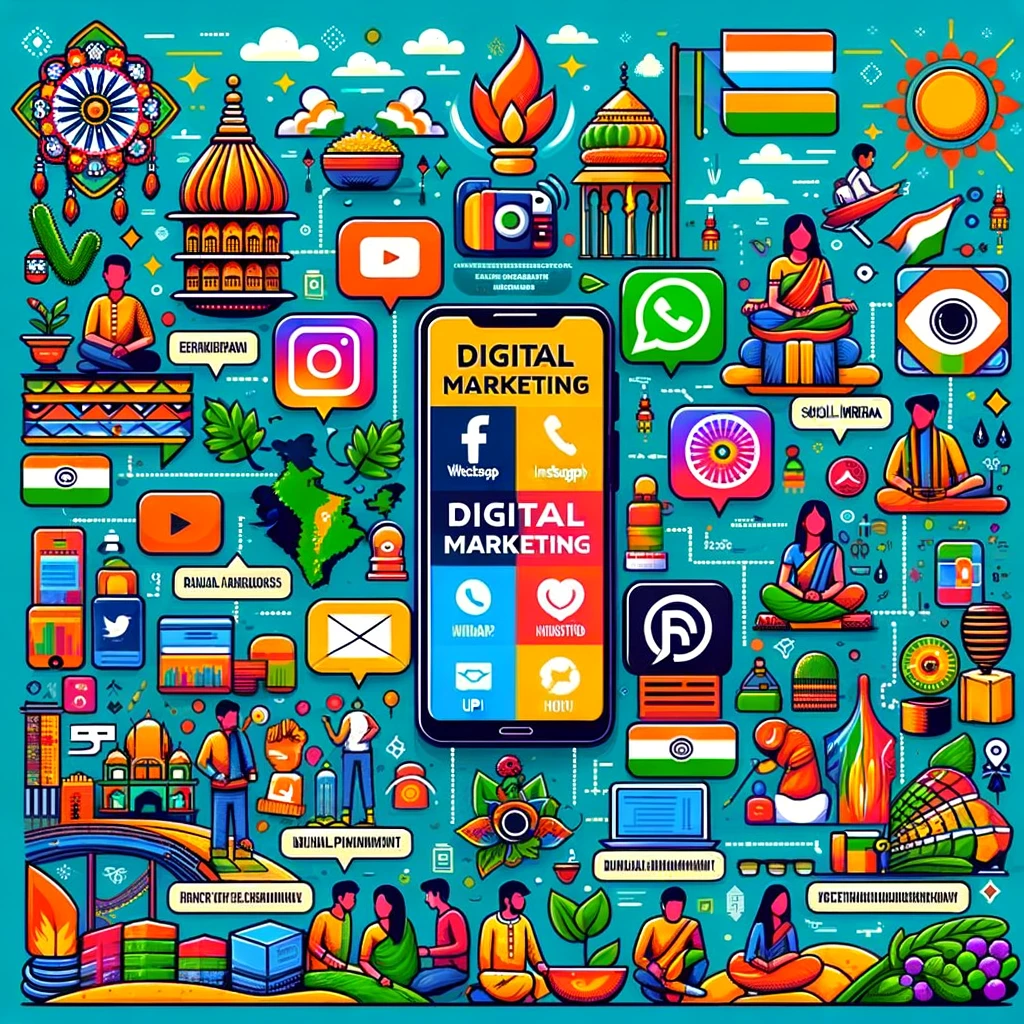
Role of Digital Marketing in Rural Marketing and Bridging the Rural-Urban Gap
Digital marketing has played a pivotal role in reducing the gap between rural and urban markets in India. With improved internet connectivity and affordable smartphones, rural consumers now have access to digital platforms that were once exclusive to urban audiences. This shift has allowed brands to expand their reach and connect directly with rural consumers in meaningful ways.
For instance, platforms like WhatsApp, Facebook, and YouTube have enabled rural consumers to access product information, view video demonstrations, and connect with local sellers. Many companies are now tailoring their campaigns with localized content in regional languages to ensure greater engagement. Brands such as Patanjali and ITC have successfully adopted such strategies to market products effectively in rural areas.
E-commerce platforms like Amazon and Flipkart have also played a significant role in closing this gap by expanding their delivery networks to remote villages. These platforms offer discounts, cash-on-delivery options, and easy return policies to cater to rural buying preferences, helping increase trust and boost sales in previously untapped regions.
Additionally, digital marketing has enabled rural entrepreneurs and small businesses to promote their services on platforms such as Facebook Marketplace and Instagram Shops. By leveraging these tools, local sellers can connect with customers both within and outside their immediate communities, enhancing visibility and driving sales.
Overall, digital marketing has empowered rural consumers with improved access to products, services, and information, fostering economic growth and reducing the rural-urban divide.
Future Trends & Innovations
The digital marketing landscape is evolving rapidly, and staying ahead of trends is crucial for long-term success. Emerging technologies like the metaverse, augmented reality (AR), and virtual reality (VR) are reshaping how brands interact with audiences. Voice search optimization is also becoming important, especially with the rise of smart speakers and voice assistants like Alexa or Google Assistant. The rollout of 5G will further enhance mobile experiences, enabling richer media formats and faster content delivery. Moreover, privacy regulations like GDPR and the phasing out of third-party cookies are pushing marketers toward first-party data and ethical marketing practices. Personalization powered by AI, conversational marketing, and sustainability-focused branding are set to become more prominent. Brands that adapt quickly to these innovations will gain a competitive edge in an increasingly crowded digital space.
Features of Digital Marketing: Conclusion
While discussing the features of digital marketing, we must keep in mind the emergence of new digital devices, channels, and technologies. The emerging digital marketing channels make it essential for marketers to adopt new trends and best practices. Likewise, intelligence technologies have been transforming and optimizing digital marketing tools regularly. These new channels and tools will continue to extend digital marketing features in the future.



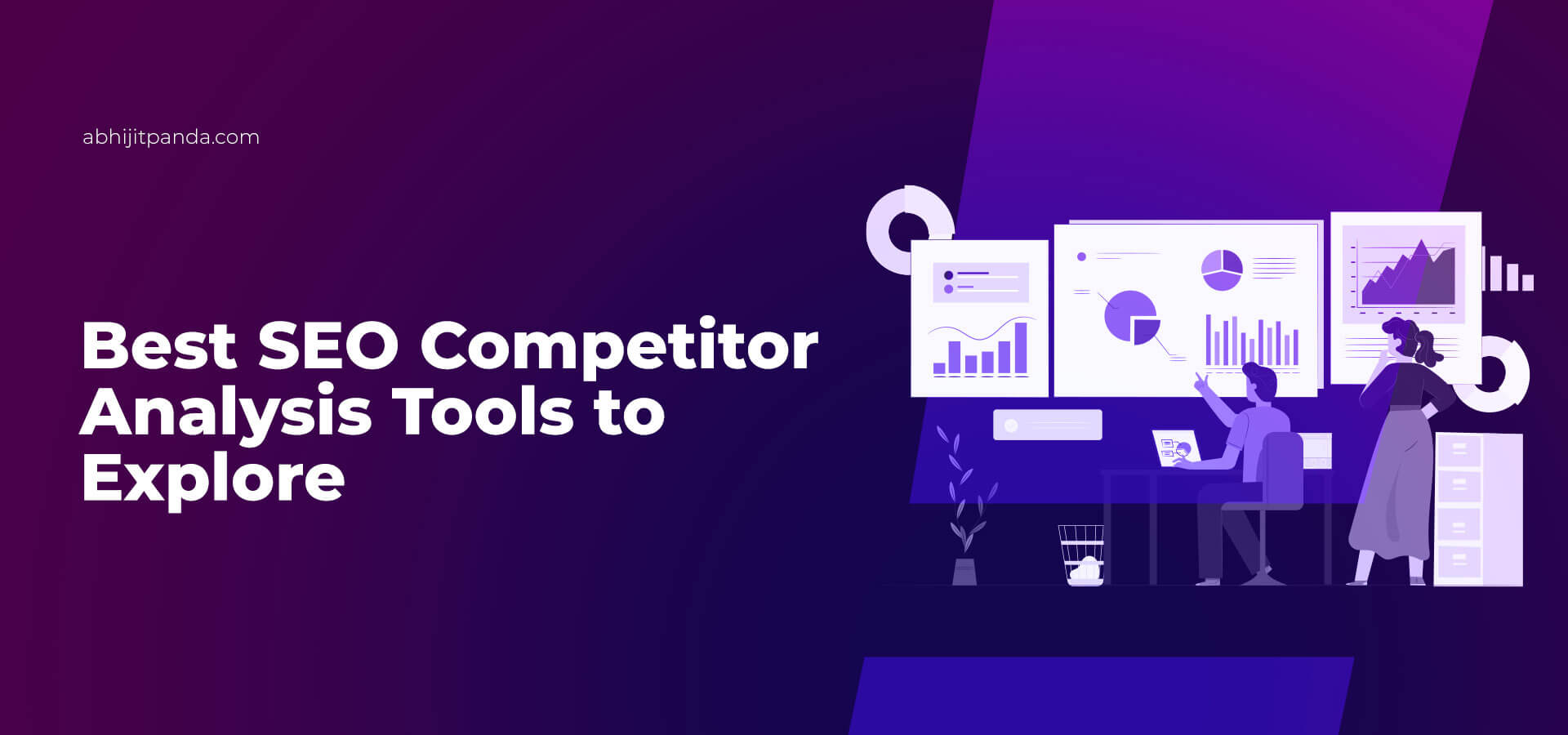
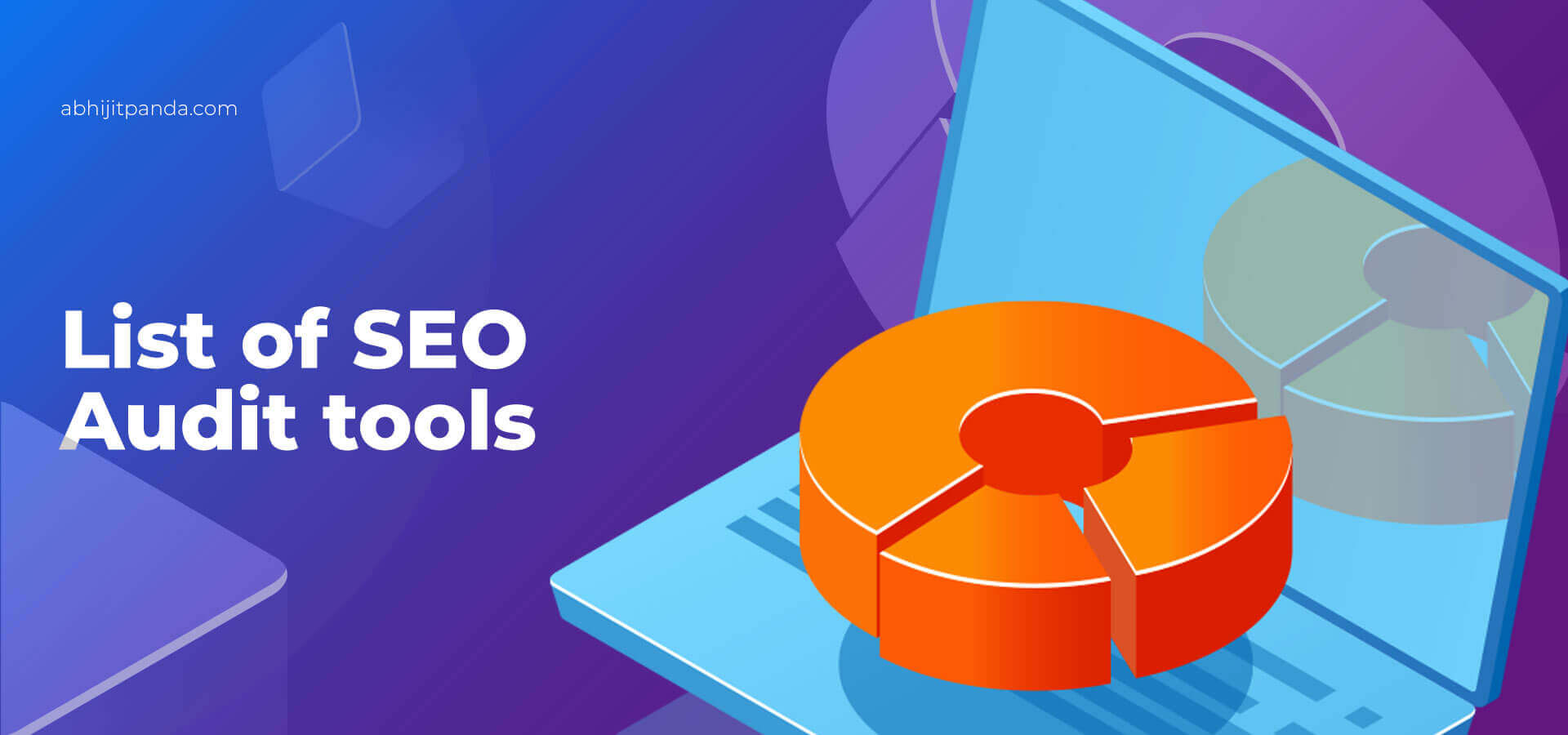
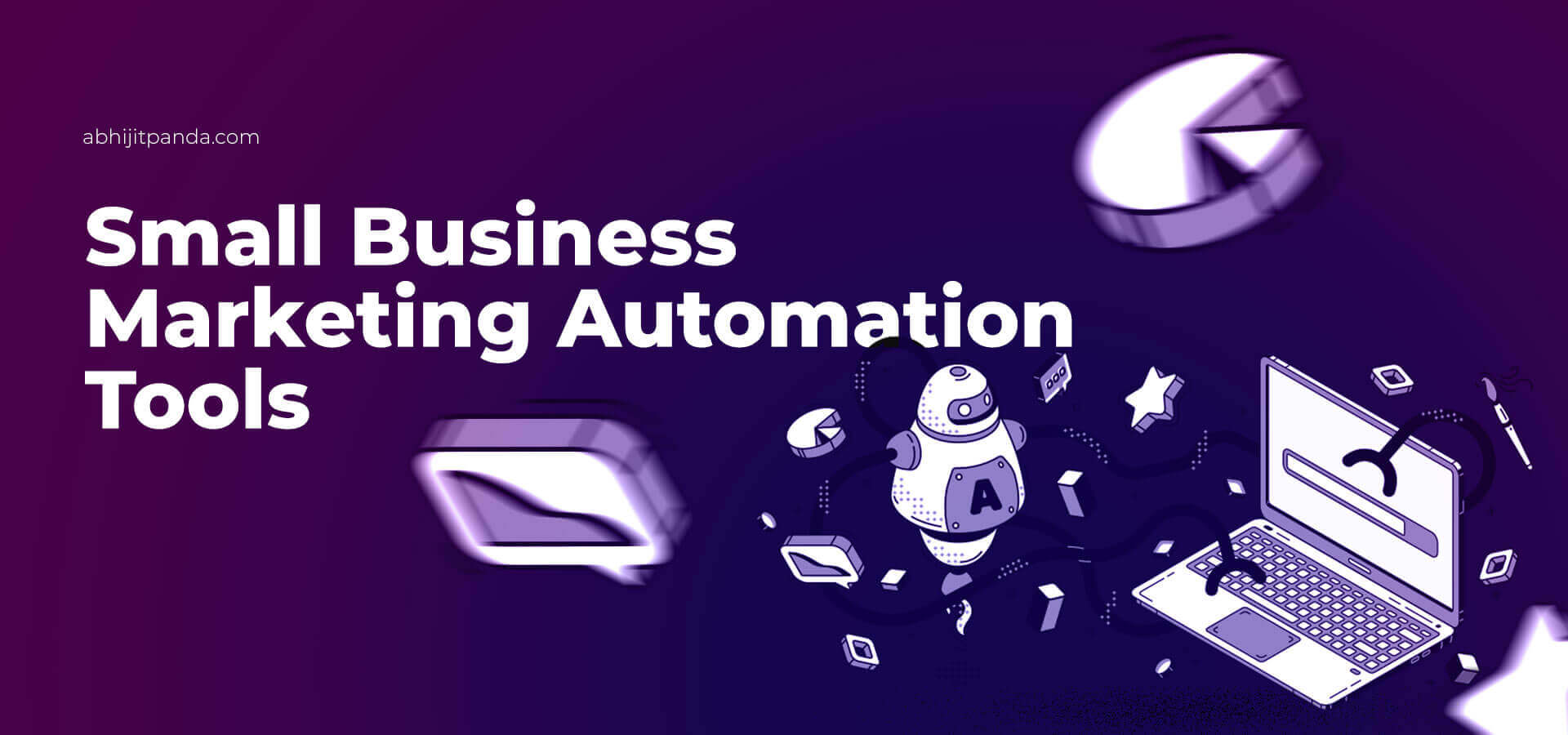
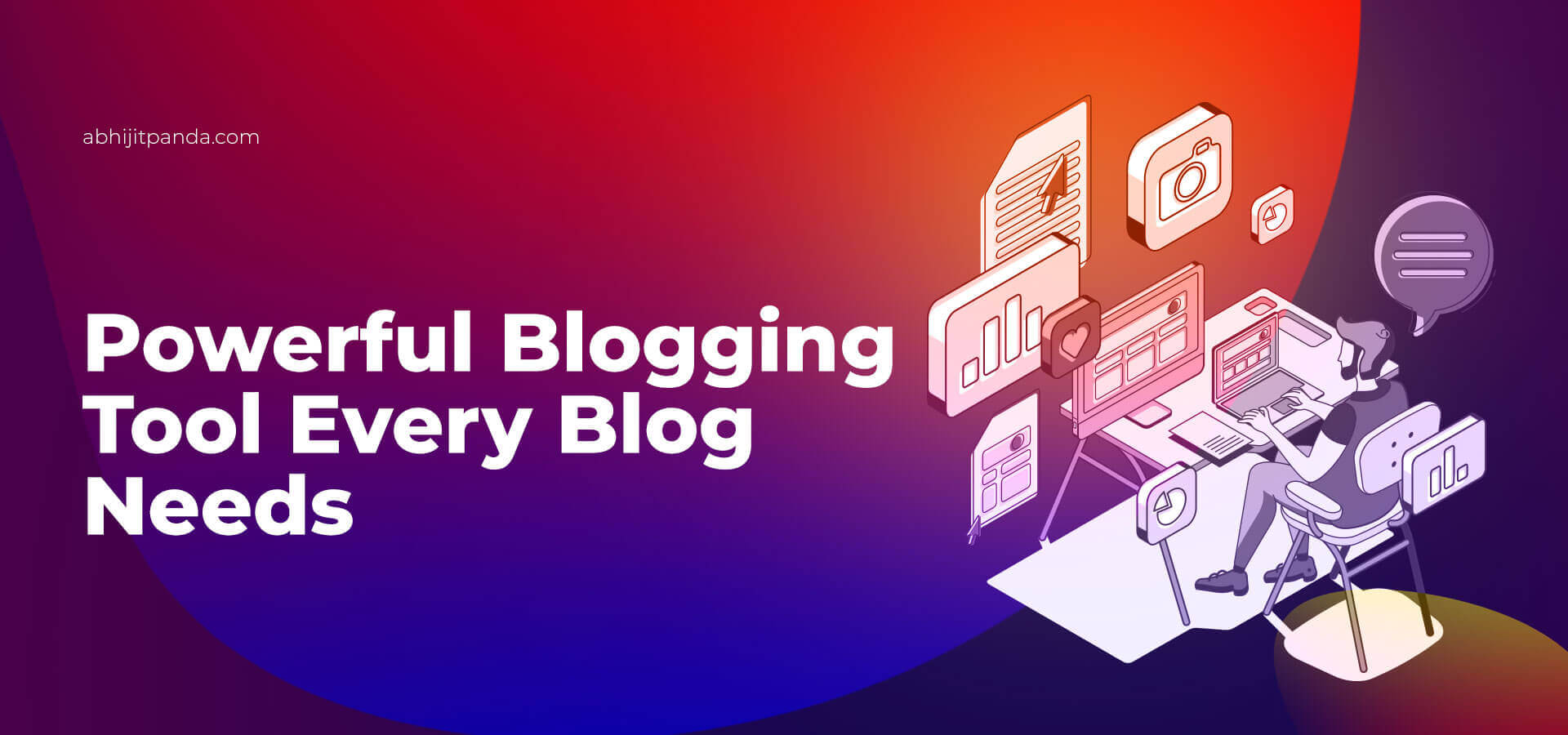
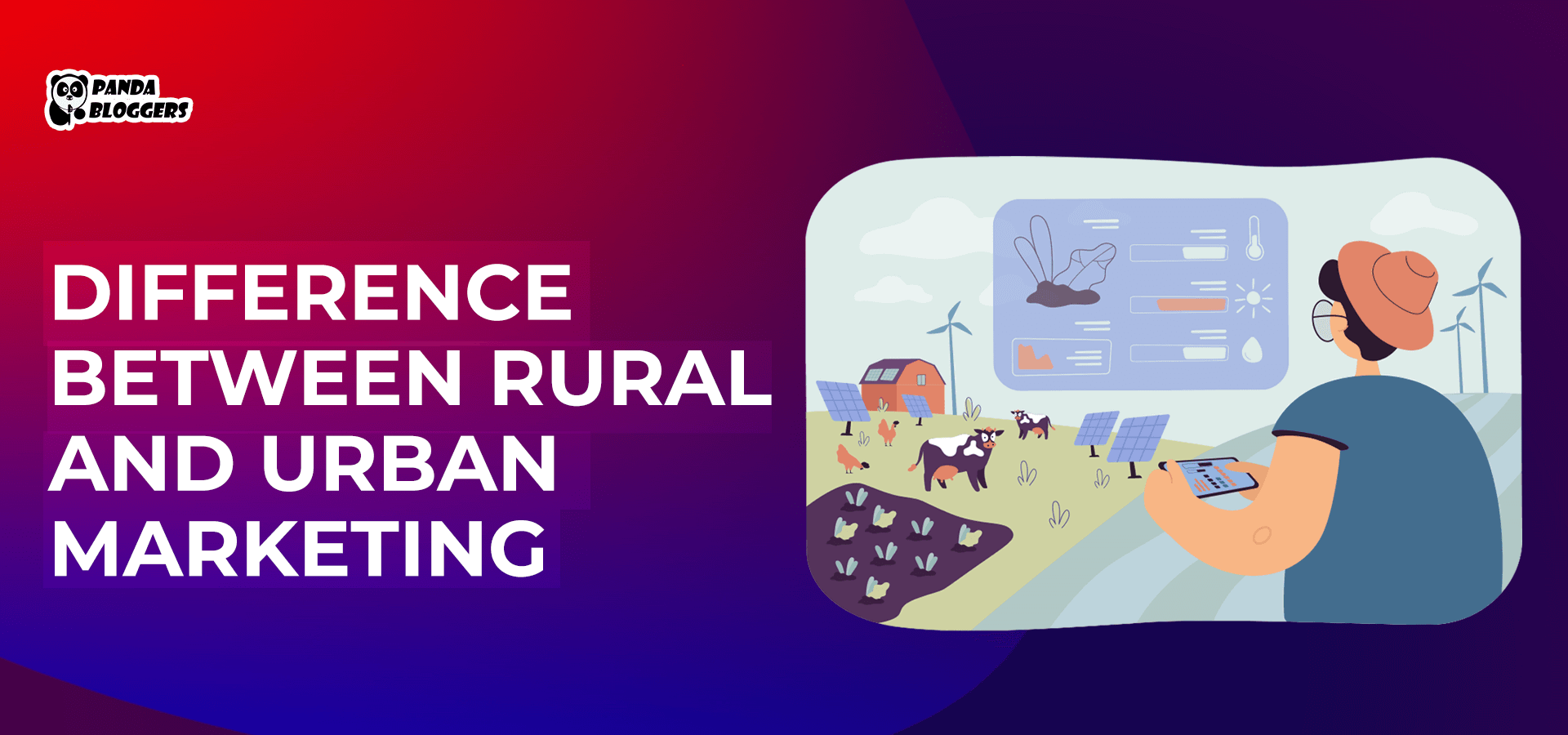

Leave a Reply